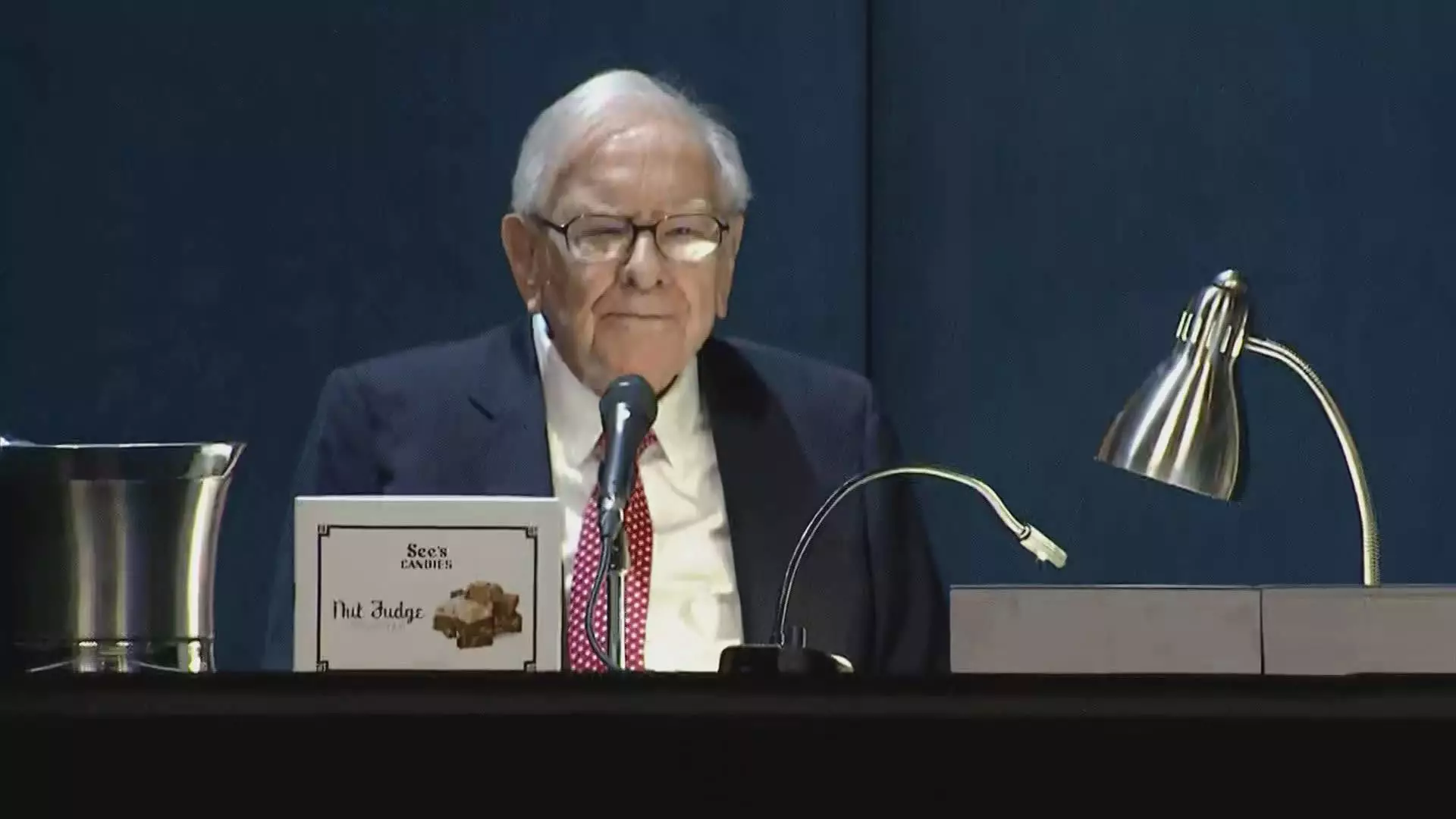Warren Buffett, the Oracle of Omaha, has recently made headlines with his decision to sell a significant portion of Berkshire Hathaway’s stake in Apple, marking a notable shift in his investment approach. With the company reporting a mere $69.9 billion in Apple shares at the end of September, this divestment signals a strategic reevaluation that has become apparent over the past year. Notably, this marks the fourth consecutive quarter of reducing Berkshire’s largest equity holding, which raises questions regarding the rationale behind this ongoing sale.
The data reveals that Buffett offloaded roughly a quarter of Berkshire’s Apple stake, leaving about 300 million shares still in the portfolio. This drastic reduction – a staggering 67.2% from the previous year’s figures – suggests a definitive pivot in Buffett’s once-steadfast loyalty to Apple. One reason speculated among analysts is the current high valuation of technology stocks, which has led Buffett to reconsider the risk associated with such concentrated holdings. At one point, Apple made up half of Berkshire Hathaway’s equity portfolio, a position that many now see as overly risky in a landscape characterized by increasing financial volatility.
Buffett’s initial foray into Apple back in 2016, influenced by his investment deputies Ted Weschler and Todd Combs, saw the company blossom into Berkshire’s largest asset. Historically cautious towards tech investments, Buffett’s embrace of Apple underscored his recognition of the brand’s ardent consumer base and the device’s integral role in everyday life. Yet, as economic conditions evolve, so does Buffett’s investment philosophy, leading him to reassess Apple’s role in his diversified portfolio.
Buffett provided some insights during the Berkshire annual meeting in May, hinting that tax strategies might play a role in these sales. He suggested that anticipated increases in capital gains taxes could be influencing his selling strategy, as investors seek ways to mitigate their tax burdens. However, the volume of shares sold has led many to question whether the motivations extend beyond mere tax considerations. The sales could be indicative of a broader strategy aimed at fluidity in an unpredictable market, reinforcing the notion that even seasoned investors must adapt to emerging economic realities.
Additionally, it’s essential to examine how these moves fit into the broader financial landscape for Berkshire Hathaway. By the end of the third quarter, the conglomerate had amassed an unprecedented cash reserve of $325.2 billion, a testament to Buffett’s cautious approach amidst market uncertainties. The decision to halt buybacks during this quarter further emphasizes his strategic posture, focusing on capital preservation rather than aggressive expansion.
While Apple shares have appreciated by 16% this year, they still lag behind the S&P 500’s 20% return, prompting Buffett’s team to question the long-term growth trajectory of even once-cherished assets. As he navigates this complex landscape, Buffett’s actions may signal a transition toward a more diversified or alternative investment strategy, reflecting a clear departure from previous years of unwavering commitment to Apple and illustrating the necessity of flexibility in investment philosophies.

